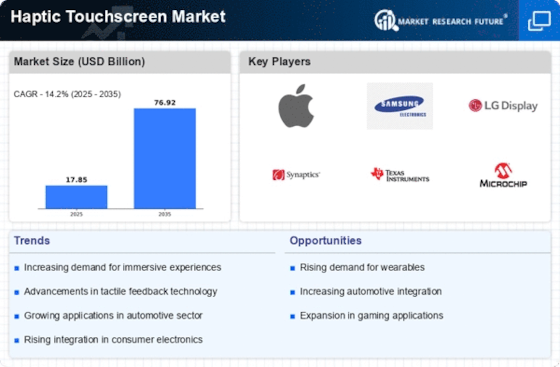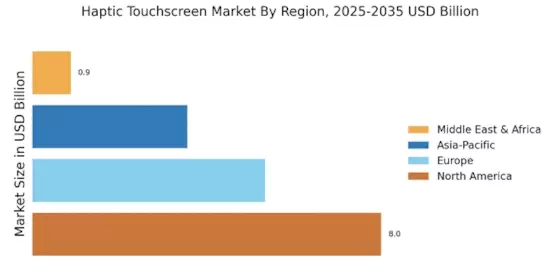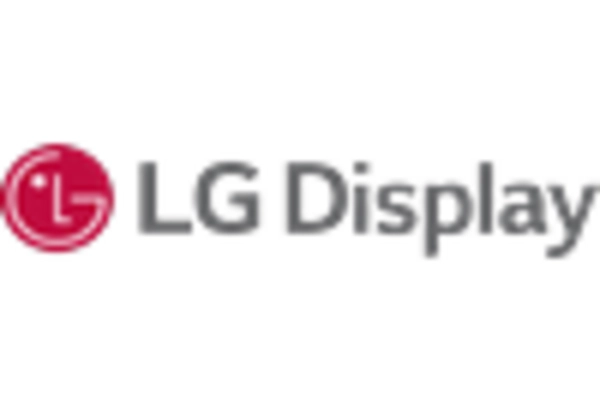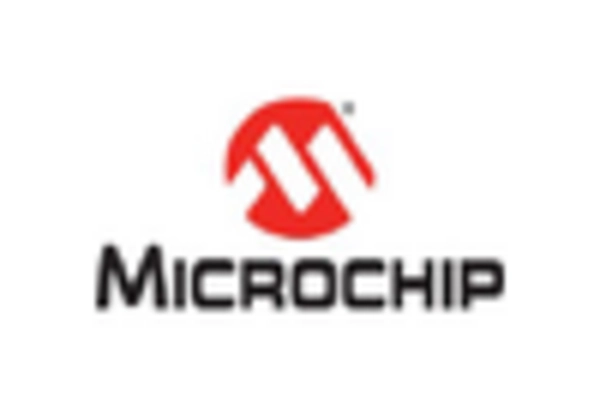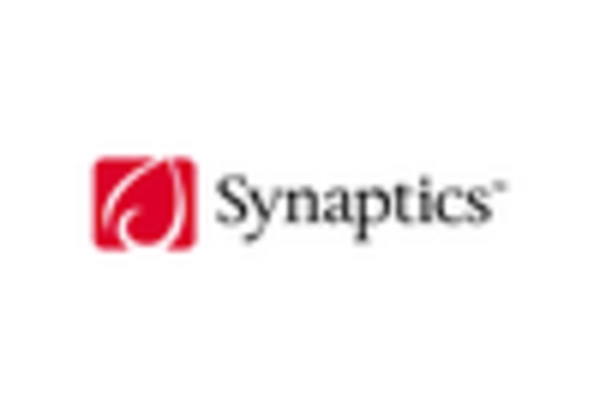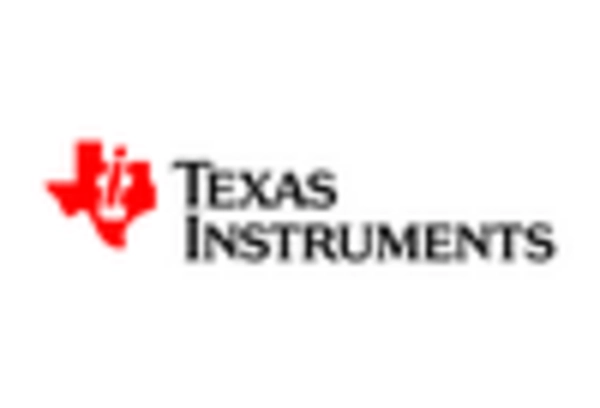Growth in Wearable Technology
The Haptic Touchscreen Market is experiencing growth driven by the rise of wearable technology. As smartwatches and fitness trackers gain popularity, the demand for haptic feedback in these devices is increasing. Haptic technology enhances the user experience by providing notifications and alerts through tactile sensations, allowing users to receive information discreetly. The wearable technology market is projected to grow significantly, with estimates suggesting it could surpass 100 billion in the next few years. This growth is encouraging manufacturers to explore innovative haptic solutions that can be seamlessly integrated into compact devices. As a result, the Haptic Touchscreen Market is likely to benefit from this trend, as more companies seek to differentiate their products through enhanced tactile feedback.
Emergence of Smart Home Devices
The Haptic Touchscreen Market is being shaped by the emergence of smart home devices. As households increasingly adopt smart technologies, the demand for intuitive interfaces that facilitate control over various devices is rising. Haptic touchscreens provide a tactile interface that enhances user interaction with smart home systems, making it easier for users to manage their environments. The smart home market is expected to grow at a rapid pace, with projections indicating it could reach over 150 billion in the coming years. This growth is prompting manufacturers to integrate haptic technology into their products, ensuring that users can enjoy a seamless and engaging experience. Consequently, the Haptic Touchscreen Market is likely to expand as more smart home devices incorporate haptic feedback to improve usability and user satisfaction.
Advancements in Gaming Technology
The Haptic Touchscreen Market is significantly influenced by advancements in gaming technology. As the gaming sector evolves, there is a growing emphasis on creating immersive experiences that engage players on multiple sensory levels. Haptic feedback plays a crucial role in this evolution, allowing gamers to feel the impact of actions within the game, thereby enhancing realism. The gaming industry has seen a substantial increase in revenue, with estimates suggesting it could reach over 200 billion in the coming years. This financial growth is prompting game developers and hardware manufacturers to invest in haptic technology, ensuring that their products meet the rising expectations of gamers. Consequently, the integration of haptic touchscreens in gaming devices is likely to become a standard feature, further propelling the Haptic Touchscreen Market forward.
Rising Demand for Enhanced User Experience
The Haptic Touchscreen Market is experiencing a notable surge in demand for enhanced user experiences across various sectors. As consumers increasingly seek intuitive and immersive interactions with their devices, manufacturers are integrating haptic technology to provide tactile feedback. This trend is particularly evident in smartphones and tablets, where the incorporation of haptic feedback enhances user engagement. According to recent data, the market for haptic technology is projected to grow at a compound annual growth rate of approximately 14% over the next five years. This growth is driven by the need for more interactive interfaces that can simulate real-world sensations, thereby improving user satisfaction and retention. As a result, companies are investing heavily in research and development to innovate and refine haptic solutions, positioning themselves competitively within the Haptic Touchscreen Market.
Increased Adoption in Automotive Interfaces
The Haptic Touchscreen Market is witnessing increased adoption of haptic technology in automotive interfaces. As vehicles become more technologically advanced, manufacturers are incorporating haptic touchscreens to enhance driver interaction with infotainment systems. This integration not only improves usability but also contributes to safety by allowing drivers to maintain focus on the road while interacting with their devices. Recent studies indicate that the automotive sector is expected to invest significantly in haptic technology, with projections suggesting a market growth rate of around 12% annually. This trend reflects a broader shift towards more sophisticated and user-friendly interfaces in vehicles, where haptic feedback can provide essential information without distracting the driver. As a result, the Haptic Touchscreen Market is likely to expand as automotive manufacturers prioritize these innovations.

